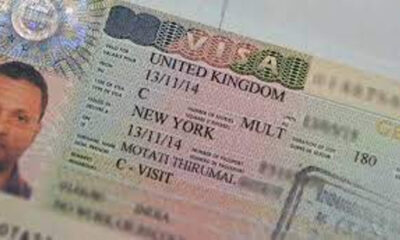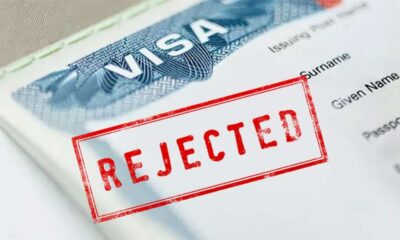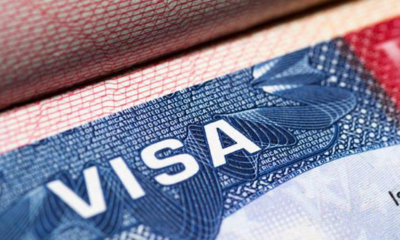news
2025 new US visa policy: Top 10 major changes for students, workers, travellers

The U.S. immigration landscape in 2025 is shifting quickly, especially under renewed enforcement measures by the Trump administration.
From students and tech professionals to everyday travelers, visa holders are facing a host of new hurdles. Here’s a breakdown of the most significant changes shaking things up:
1. Student Visas Revoked for Minor Offenses
More than 300 international students including those from top universities like Harvard and Stanford have lost their visas over seemingly minor infractions, such as speeding tickets. This harsh enforcement has sparked confusion and fear among international students, raising concerns over just how fragile visa status has become.
2. Tougher F-1 Visa Approval Process for Indian Applicants
Students from India are feeling the pinch the hardest. In 2024, the F-1 visa rejection rate soared to 41%. Applicants now face longer wait times, more intense interviews, and stricter financial scrutiny, making it tougher than ever to get into U.S. schools.
3. OPT Program Under Threat
The future of the Optional Practical Training (OPT) program a crucial pathway for students to work after graduation — is uncertain. Lawmakers are pushing to abolish it, which would force many students to either secure an H-1B visa or leave the country immediately after school.
4. Visa Ban for South Sudanese Citizens
In a sweeping diplomatic move, the U.S. has revoked all visas for South Sudanese nationals. Even individuals under protected status have been impacted, setting a troubling precedent for future nationality-based bans.
5. H-1B Workers Warned Against International Travel
With visa processing delays and unpredictable border policies, tech companies are advising H-1B employees not to travel internationally. Re-entry could be risky, and some companies have issued formal notices to discourage non-essential travel.
6. CIS Ombudsman’s Office Shut Down
The closure of the Citizenship and Immigration Services Ombudsman has left many visa holders without a key support system for resolving bureaucratic issues. Without it, navigating problems like delays or errors has become even more challenging.
7. AI Now Used to Monitor Student Protesters
A controversial new policy uses artificial intelligence to track the social media activity of student protesters. Visas have already been revoked over posts deemed anti-Semitic, igniting legal challenges and concerns over privacy and free speech.
8. H-2B Visa Cap Already Reached
The seasonal H-2B work visa limit for the second half of the fiscal year has already been met — months ahead of schedule. Industries relying on these workers, such as hospitality and agriculture, are scrambling for alternatives.
9. New Gender Identity Rules Create Obstacles
USCIS has revised its policies to recognize only two biological sexes — male and female — which is complicating applications for transgender and non-binary individuals. The move has sparked backlash from LGBTQ+ communities and immigration advocates.
10. J-1 Visas Revoked Over Minor Issues
J-1 exchange visitors are under increased scrutiny. Even small administrative oversights are triggering visa cancellations. In one widely reported case, a Harvard scholar lost their visa over undeclared frog embryos. The message is clear: perfection is now expected.
With policies changing rapidly, anyone planning to study, work, or travel to the U.S. in 2025 must stay vigilant. Check for official updates from USCIS, consult with legal experts, and think twice before making travel plans that could put your visa at risk.
























